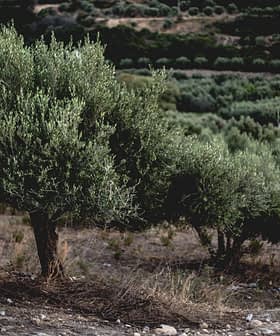World leaders and delegations from nearly 200 countries are convening in Dubai, United Arab Emirates, to discuss action on climate change in a year of extreme weather around the globe.
The main objective of COP28, the 28th annual United Nations climate change conference, is to sustain the goal among the world’s nations of keeping global temperature rise below 2 ºC – and preferably below 1.5 ºC – this century compared to pre-industrial levels as stipulated by the Paris Climate Agreement of 2015.
IPCC, the United Nations Intergovernmental Panel on Climate Change, has indicated that achieving the 1.5‑degree target is crucial to staving off the most damaging effects of climate change.
See Also:Olive Trees Can Help Beat Climate ChangeHowever, based on recent scientific estimates, the average global temperature will likely exceed the 1.5 ºC limit and rise somewhere between 2.4 ºC and 2.7 ºC above pre-industrial levels by 2100 under current policies.
Meteorologists have also warned that 2023 is expected to be the hottest year ever recorded on the planet, while 2024 will likely set even higher temperature records.
Meanwhile, according to a study by British NGO Save the Children released ahead of COP28, more than 27 million children in 12 countries experienced acute food insecurity in 2022 due to extreme weather events, which have been linked with climate change.
However, COP28 became the scene of contention even before its official opening of operations last Thursday.
The appointment of Sultan Ahmed al-Jaber, the chief executive of ADNOC, the state-owned oil company of the United Arab Emirates, to chair the summit has been widely criticized by environmentalists and other interest groups.
“This appointment goes beyond putting the fox in charge of the henhouse,” said Teresa Anderson, the Global Lead on Climate Justice at ActionAid.
“The U.N. Climate Summit is supposed to be a space where the world holds polluters to account, but increasingly, it’s being hijacked by those with opposing interests,” Anderson added. “Like last year’s summit, we’re increasingly seeing fossil fuel interests taking control of the process and shaping it to meet their own needs.”
In addition, documents seen by the BBC reportedly show that Sultan al-Jaber is planning to use the COP28 climate summit as a vehicle to negotiate fossil fuel deals with other countries and private oil companies.
Al-Jaber dismissed the allegations, stating that climate change can only be addressed if oil and gas are part of the discussions at the climate summit.
The U.A.E. said that the documents aired by the BBC are inaccurate and that any professional talks about oil and gas taking place at the COP28 would be only on a “private level.”
Asked by journalists to comment on al-Jaber’s alleged secret agenda for new oil deals, United Nations secretary-general António Guterres said, “I can’t believe it is true.”
A palpable discord among participants is also evident at COP28 over using fossil fuels for energy production, which is considered the main source of greenhouse emissions.
Summit chair Sultan al-Jaber called for a gradual reduction (phase-down) in their use, while a coalition of the E.U. bloc and other countries is pushing for a complete phase-out of fossil fuels and a switch to renewable energy.
“Our ambition is to really phase out fossil fuels as soon as possible and have language that does justice to that cause,” said Wopke Hoestra, the European commissioner for Climate Action.
However. officials from oil-producing countries attributed the bloc’s eagerness to phase out fossil fuels to the fact that the E.U. countries are minor oil producers and almost entirely dependent on oil imports to cover their energy needs.
COP28 attending nations are also expected to approve releasing the first ‘loss and damage’ payments, agreed at COP27 last year, to assist developing countries impacted by climate change.









